Books
Giving British crime writers their due
Barry Forshaw explains why he has abandoned the Scandinavians to write Brit Noir…
Academic? Moi?
Whenever I run into him, Lee Child addresses me as ‘Professor’. I’m sure the UK’s most successful thriller writer doesn’t think I’m an academic – he’s joking — but some people do. I’ve written quite a few books for academic publishers, and I’ve done talks and courses at City University and King’s College as well as the British Library. But I don’t own a tweed jacket (or whatever the current uniform of the academic is), and, frankly, I’m happier being known as a journo and writer who covers crime fiction and film for various publishers and newspapers.
Until recently, I was routinely referred to as ‘The Scandinavian Guy’ — hardly surprising, given that I’ve written four books on Nordic Noir (one even using that very title). But I hold no special brief for the Scandinavians, talented though they are – my own countrymen and women sport among their number a host of first-rate crime and thriller writers. And that’s one of the reasons (apart from the nagging I’ve received from various British writers) why I finally buckled down and tackled Brit Noir, a guide to contemporary UK crime writers, which was designed to be a more accessible paperback companion to my British Crime Writing Encyclopedia (a pricey two-volume set). The other reason was to extol the virtues of some excellent writers from this country. And why don’t I tell you about four of the best? Warning: this may cost you money…
American Brit</font size>
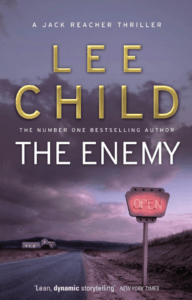
I began this piece by talking about LEE CHILD, so let’s examine his work as the first example of top-notch Brit Noir. The author has steadily – and inexorably – built up one of the most devoted followings of any current thriller writer – and it’s not hard to see why. In books such as Killing Floor and Die Trying, Jack Reacher is shaping up to be one of the most enduring of contemporary heroes, and his laconic, hard-boiled appeal is easy to fathom. But perhaps it’s the effortless American locales that really set the seal – particularly impressive in light of the fact that the author is English. The Enemy received the usual plaudits; this outing for Jack Reacher is Lee Child at his considerable best. Set before the other books, this one has Reacher finding himself in North Carolina on New Year’s Day, 1990. In other parts of the world, history is being made, such as the tearing down of the Berlin Wall. But Reacher, a Military Police Duty Officer, is dealing with a baffling case: a soldier has been found lifeless in a downmarket motel, and when Jack visits the house of the soldier (a general, in fact) to break the news to the dead man’s wife, he finds she is also dead. Soon, dark happenings in another part of the world are setting off ripples in the States, and Reacher is up against the hardest – and most dangerous – task he has yet encountered. As a picture of the early life of Jack Reacher, this is successful, and has all the energy and drive of Child’s best work
The Storyteller</font size>
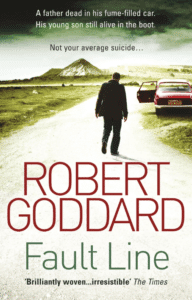
There are a variety of writers who are granted the soubriquet ‘master storyteller’ by their publishers (usually in the teeth of the truth), but one British writer unquestionably has earned (and continues to earn) such a title – the prolific and inventive ROBERT GODDARD. His novel Fault Line was advertised as a classic British mystery from the master of the triple-cross, with the intricacy of his plotting applauded – and it’s hard to argue with this assessment. But what is perhaps most impressive about this assemblage of skills is the sheer consistency that the novelist has demonstrated over the years. The ever-reliable Goddard remains one of the most imaginative novelists this country has produced – a specialist in forging narratives of complete command and power. His name on a jacket is a surefire guarantee that the book will be very hard to put down — as with such books as Blood Count, with the conflicted Edward Hammond a strongly drawn protagonist. Goddard’s narrative skills are top drawer.
Not for the Squeamish</font size>
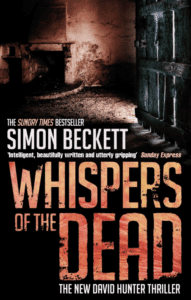
If you hanker after strong, pungent writing, then the fierce work of SIMON BECKETT is for you. Such books as Whispers of the Dead have all the adroitly orchestrated tension we now expect from him. Forensic expert David Hunter has escaped the grim residue of his last case and has returned to the research faculty at which he learned his craft: the Body Farm in Tennessee. He accepts an invitation from his ex-mentor to visit a crime scene – a secluded cabin. The horrors that await him there takes him swiftly back into the territory he knows too well: a cat and mouse game with a cunning and monstrous killer. Chemistry of Death and Written in Bone are equally impressive, with Beckett demonstrating a casual mastery. Simon Beckett fans will know what to expect from his work – and though the squeamish would be wise to steer clear (as they should always do with this writer), the rest of us will have a grimly suspenseful and edgy time.
The Individual Ms Bauer</font size>
All popular entertainment fields end up chasing its tail, so why should crime fiction be any different? Most of the time, it isn’t. A book or an author makes a mark with a new idea, and publishers scramble over themselves to get their authors writing similar books, staying just the right side of plagiarism. There are, however, some talented writers who are either so quirkily idiosyncratic — or just plain bloody-minded — that their books resolutely resist conforming to whatever the latest modishness is. Foremost among this admirable company is the award-winning BELINDA BAUER, who — in the space of half a dozen books — has become one of the most individual of crime writers. Her first novel was the very distinctive Blacklands, shortlisted for the CWA Debut Dagger and, a year later, winning the CWA Gold Dagger. Her most recent book was Rubbernecker, which had her admirers claiming that this was in fact her best work, and so expectations were high for The Shut Eye.
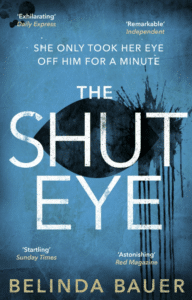
Anna Buck’s son Daniel has gone missing, leaving behind only five footprints in cement as a sign that he ever existed. But this memento becomes immensely important to his devastated mother, who polishes the footprints daily as if they were religious relics. The suicidal Anna is a woman clearly hovering near the fringes of insanity, and it is hardly surprising when she turns to a TV psychic, Latham, for clues as to what happened to her son. Readers are inevitably sceptical of this man, but one beacon of hope may be on offer for Anna, if she can but take advantage of it: DCI John Marvel, who despite a cold, withholding personality, is clearly a man who will leave no stone unturned in a search for the truth.
The Shut Eye (the expression means a genuine psychic) is very satisfying, even though in terms of inventiveness it is a notch below the impeccable form of Blacklands and Rubbernecker. But having said that, even lesser work from Bauer is streets ahead of most of her rivals. Her secrets are easy to discern: mastery of characterisation that makes most writing in the genre seem undernourished – both the tragic Anna and the curmudgeonly copper Marvel are fully fleshed-out three-dimensional figures, the contrast between her gullibility and his cynicism piquant and sharp. And as so often with Bauer’s work, along with the quirkiness mentioned above, a growing sense of malign horror lurks at the edge of the narrative that ensures an intensity of reading experience. By the time of the climax, in which the footprints in the cement acquire a bizarre new significance, readers will find themselves rushing to the final pages.
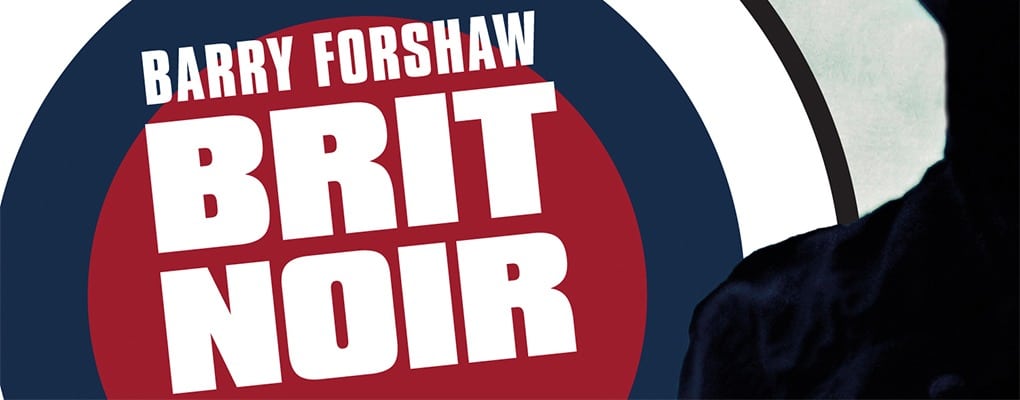


Please note: Moderation is enabled and may delay your comment being posted. There is no need to resubmit your comment. By posting a comment you are agreeing to the website Terms of Use.